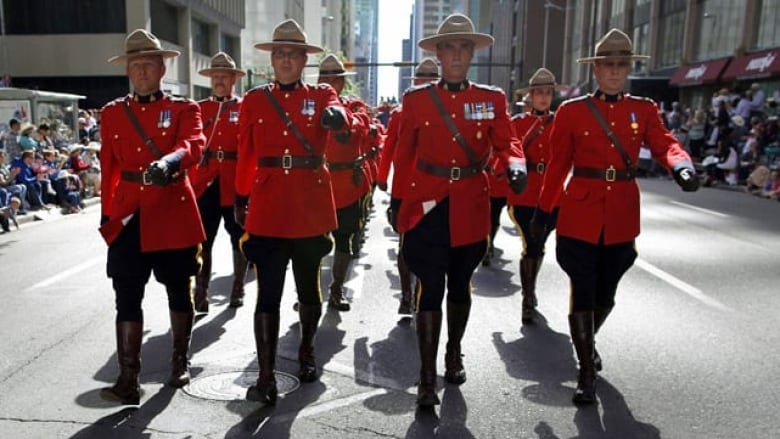Mounties wrap up vote today to select a new labour union
The RCMP are the only major non-unionized police force in Canada

Mounties are marking a historic moment today in their fight to unionize for the first time in the institution's 145-year history.
RCMP members have until noon today to vote on whether they want the National Police Federation to represent them, but it could be months yet before they learn the results.
The Federal Public Sector Labour Relations and Employment Board is overseeing the union certification vote. It has said the results will be kept under wraps until it rules on whether Quebec Mounties should have their own union.
Both the National Police Federation and the Quebec Mounted Police Members Association applied to be certified as the bargaining agent for regular members and reservists. The federation is seeking to represent more than 18,000 members across the country, while the association wants to represent just the 900 frontline members in Quebec.
The association is arguing that appointing one bargaining agent would be unconstitutional because francophone members have distinct interests. It also has accused the NPF of trying to "stir up anger and create division."
The employment board is still hearing the Quebec police group's challenge and closing arguments are scheduled for March of 2019.
NPF President Brian Sauvé said there's room for two bargaining agents, but a truly national organization can better represent members from coast to coast.
"We all wear the same stripes, we all have the same training, we all serve the same country. Canada is Canada and my Canada includes Quebec," he said.
Frustration mounting
The fight to get to the point of a certification vote has taken a very long time.
Nearly four years ago, the Supreme Court of Canada granted members of the national police force the right to form an association and collectively bargain with the federal government.
The top court gave the federal government one year to bring in legislation and a framework for the RCMP to unionize.
The Liberals introduced Bill C-7 — which was criticized by virtually everyone except for senior RCMP managers for severely limiting what Mounties could negotiate at the bargaining table. It passed both Houses with amendments and received royal assent in June 2017.
The NPF applied for certification that same year, after gathering more signatures than its rival, the Mounted Police Professional Association Canada.
Sauvé said the delays have been wearing on the members — especially when coupled with the current salary freeze.
"What it does is you have a level of frustration that mounts," he said. "So you have a membership that is questioning their allegiance to the RCMP and whether or not the RCMP, or the government of Canada, has their back."
Sauvé said pay and housing will be two of the key issues the NPF will dig into first if it's allowed to represent Mounties.
Electronic voting started Nov. 21. If RCMP officers vote against the NPF's certification, then it'll be back to the drawing board to find a national bargaining group.
The Quebec Mounted Police Members Association did not reply to CBC's request for comment.